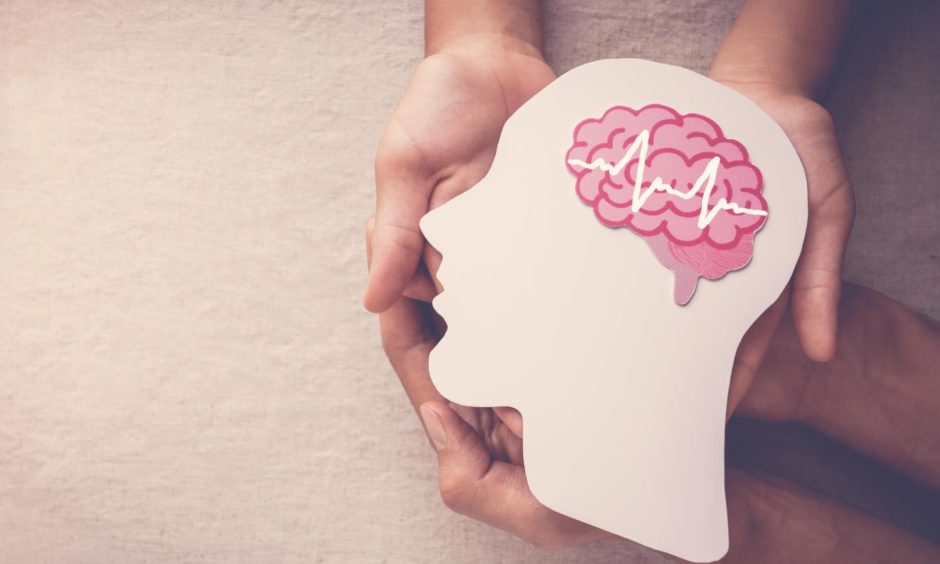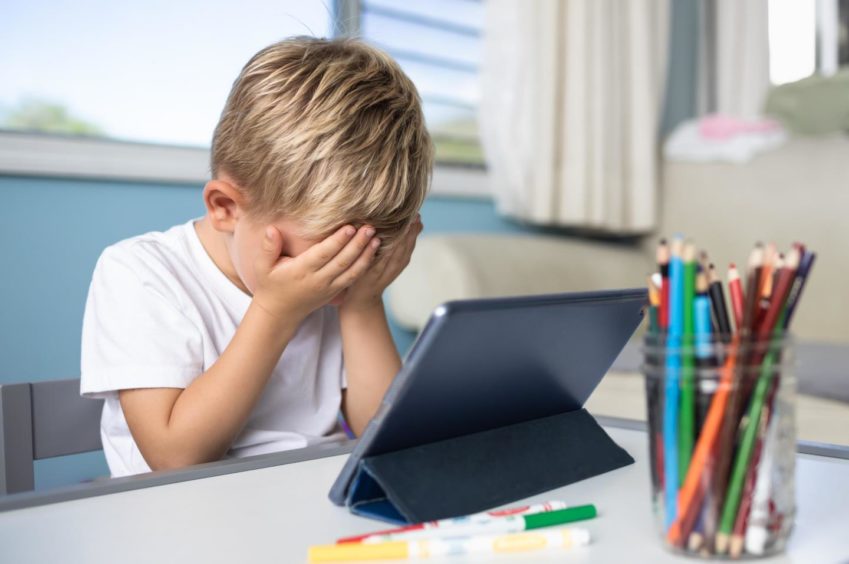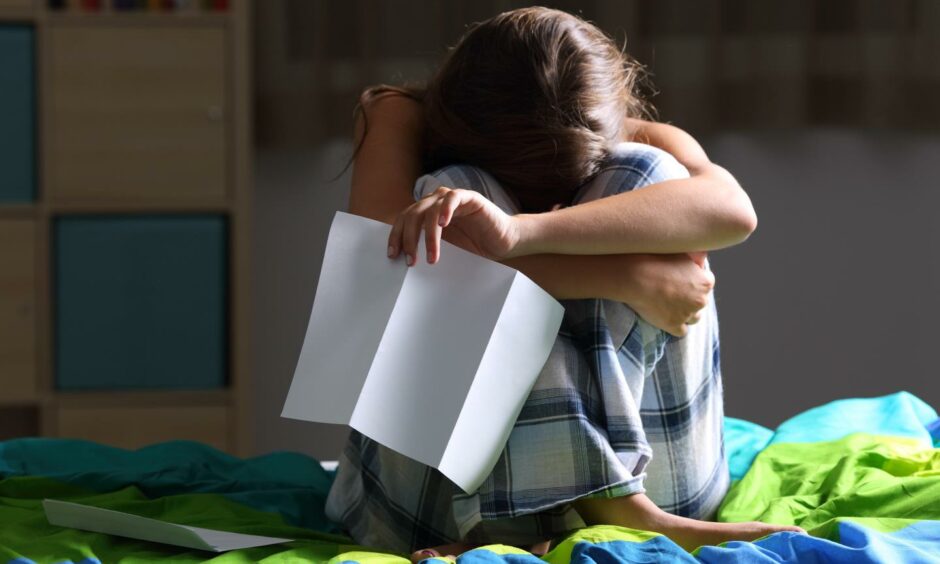Child health experts are warning of a ‘lost generation’ of children and a mental health pandemic due to continuing pressure on services.
New research by charity stem4 for Youth Mental Health Day reveals 60% of 13 to 21-year-olds are experiencing anxiety, low mood, eating disorders and self-harming behaviours.
A third say they have mental health difficulties but do not have the courage to ask for help, with just 7% talking openly.
The Scottish Children’s Services Coalition (SCSC) and CAMHS are calling for immediate action to support young people.
So with waiting times and problems both at a high, how can your help your kids if they’re finding things difficult?
Loneliness, uncertainty about their future and academic stress are having the greatest impact, says the report.
Lesley Fraser is a Fife-based coach whose business Mindful Monkeys works to help children and families deal with their emotions, mindset and resilience.
She see families through her programme Better Together as well as one-to-one coaching, and agrees young people have struggled over the pandemic.
She says: “Over the course of lockdown, with things like home schooling, decisions have been taken away from young people, which has definitely had an impact.
“They’ve had to live with all of these changes and they haven’t had control over their environment.
“Teenagers especially are having a really emotional responses and parents are worrying what that means for their child.
“Younger clients of mine are experiencing anxiety, issues with self-worth, worrying about what’s coming in the future and of course the transition through school which has been difficult.
“We have a lot of un-anchored kids at the moment and a lot of worried parents.”
What can parents do?
Lesley says it’s all about being able to listen and communicate.
“Our kids aren’t broken – they just need to develop a sense of who they are and how they can bounce back.”
Simple things to try today include:
- Get comfortable with feeling uncomfortable – don’t try and fix, but learn to listen without judgement to your children to help them build resilience.
- Put down your phone and be in the room with them.
- Make the most of the small interactions – after school, round the dinner table.
- Choose your battles and ask them – “do you want me to listen, give my opinion or help you fix this?”
- Share things you’ve learned to show empathy and relatability.
Lesley adds: “It’s a challenging time for us all at any stage. We’re all going through lots of different things.
“And it should be remembered your own mental health as a parent is more important than ever. Be kind to yourself – we haven’t parented in this environment before!
“I always advise clients to choose connection over correction – stop trying to win the battles and choose everyday moments.
“That’s what will encourage your kids to ask for your advice – when you show an interest in what they’re doing.
“You can also help them to help themselves by not jumping in to fix but listening and helping them build resilience.”
Experts call for urgent action
Dr Helen Smith, chair of the CAMHS Faculty, Royal College of Psychiatrists in Scotland, says: “It’s shocking that one in 10 young people in Scotland are now being referred to CAMHS.
“What we need now is real resources, not cosmetic changes. To fix this problem and to keep up with demand, we need proposed investment to be delivered urgently, along with 320 new children and adolescent mental health staff.”
An SCSC spokesperson says: “We have for some time raised concerns over a potential lost generation of vulnerable children and young people, whose mental health is being impacted even further by the Covid-19 pandemic.
“This is a crisis we can overcome. But it will require a similar energy and commitment to that demonstrated for Covid-19 if we are to achieve this and prevent many young people giving up on their futures.”




